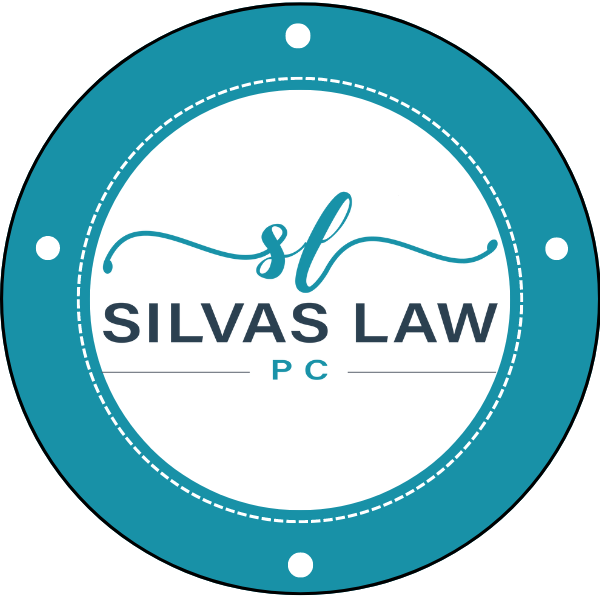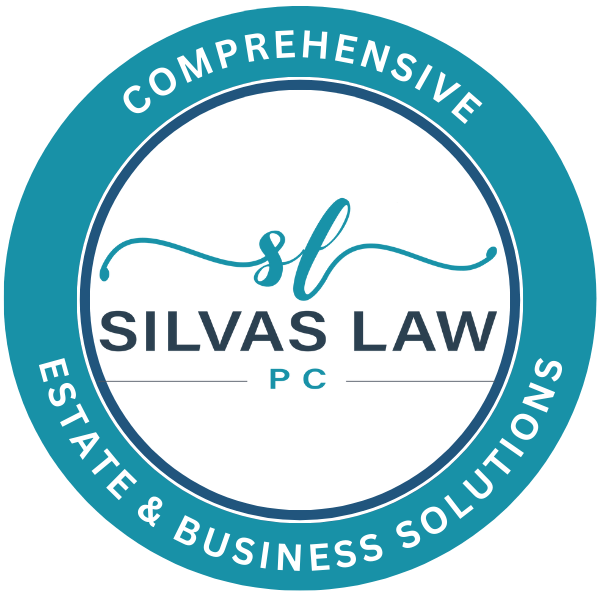The Basics of Intellectual Property Every Business Owner Should Know
The Basics of Intellectual Property Every Business Owner Should Know
Navigating the world of intellectual property (IP) can feel overwhelming, but understanding these fundamental legal protections is crucial for your business success. Whether you're just starting out or looking to strengthen your existing business, knowing how to protect your assets can make the difference between thriving and merely surviving in today's competitive marketplace. Let's explore the essentials of intellectual property that every business owner should understand.
What Is Intellectual Property and Why Does It Matter?
At its core, intellectual property refers to creations of the mind—inventions, literary and artistic works, designs, symbols, names, and images used in commerce. Unlike physical property, intellectual property is intangible yet incredibly valuable. Think about what makes your business unique: Is it your innovative product design? Your catchy brand name? The special way you deliver your services? These distinctive elements represent your competitive advantage, and protecting them through IP rights helps ensure others can't simply copy your success.
IP protection matters for businesses of all sizes. For startups and small businesses, strong IP can attract investors and set you apart from competitors. For established companies, IP often represents a significant portion of your overall value—sometimes even more than your physical assets. According to the U.S. Chamber of Commerce, IP-intensive industries account for more than 40% of U.S. economic activity and support over 60 million American jobs.
But before you can protect your intellectual property, you need to understand the different types available and which ones apply to your specific business assets.
The Four Main Types of Intellectual Property Protection
Each type of intellectual property protection serves a different purpose and protects different aspects of your business. Understanding these distinctions is the first step toward developing a comprehensive IP strategy.
Trademarks
Trademarks protect brand identifiers like your business name, logo, slogan, or any distinctive sign that sets your products or services apart from others in the marketplace. Trademarks can potentially last forever as long as you continue using them and renew your registrations. While common law trademark rights begin as soon as you start using your mark in commerce, registering with the U.S. Patent and Trademark Office (USPTO) provides stronger legal protection and nationwide coverage.
For example, think about recognizable trademarks like the Nike swoosh or McDonald's golden arches. These symbols instantly communicate the source of products or services to consumers. Have you considered which elements of your brand deserve trademark protection?
Copyright
Copyright automatically protects original creative works fixed in a tangible medium, including written content, artwork, music, software code, and videos. Copyright protection lasts for the author's lifetime plus 70 years (for works created after 1978). While registration isn't required for protection, registering with the U.S. Copyright Office provides significant advantages if you ever need to enforce your rights, including the ability to sue for statutory damages and attorney's fees.
Patents
Patents protect inventions and grant inventors exclusive rights to make, use, and sell their innovations for a limited period, typically 20 years from the filing date for utility patents. Patents require a formal application process through the United States Patent and Trademark Office, where you must demonstrate that your invention is novel, non-obvious, and useful. The application process can be complex and expensive, but the exclusive rights a patent provides can be invaluable for innovative products or processes.
Trade Secrets
Trade Secrets cover confidential business information that provides a competitive advantage—think manufacturing processes, customer lists, or special recipes like Coca-Cola's famous formula. Unlike other IP types, trade secrets don't require registration but depend on your efforts to maintain their secrecy through confidentiality agreements, limited access, and other security measures. Trade secrets can potentially last indefinitely as long as the information remains secret.
Now that you understand the basic types of IP protection, let's look at how to implement them in your business.
Implementing IP Protection in Your Business
Developing an effective IP strategy doesn't have to be complicated, but it does require thoughtful planning and consistent execution - and professional support. Here are key steps to consider:
Conduct an IP audit, to identify what intellectual property your business already has. Look at your brand elements, creative works, innovative products or processes, and confidential information. This inventory helps prioritize what needs protection and identifies potential gaps.
Develop clear ownership policies for intellectual property, especially when working with employees, contractors, or partners. Many businesses are surprised to learn that, without proper agreements, the creator of certain works may retain rights rather than the business that paid for the creation. Employment contracts, work-for-hire agreements, and assignment provisions are crucial for establishing ownership.
Implement proper marking practices by using appropriate symbols to indicate your IP rights: ® for registered trademarks, ™ for unregistered trademarks, © for copyrights, and "Patent Pending" or patent numbers for patented items. While not always legally required, these markings put others on notice about your rights and can deter potential infringement.
Monitor and enforce your rights consistently. Set up systems to watch for unauthorized use of your intellectual property, such as Google alerts for your brand names or industry monitoring services. When you discover potential infringement, address it promptly—sometimes a simple cease-and-desist letter is sufficient, while other situations may require formal legal action.
Consider international protection if you do business globally or plan to expand internationally. IP rights are generally territorial, meaning U.S. registrations only protect you within the United States. Options like the Madrid Protocol for trademarks or the Patent Cooperation Treaty (PCT) for patents can streamline international protection.
IP Law can be complicated, and you don’t want to employ these strategies yourself. You need a trusted advisor, and as a LIFTed Business Advisor, I am that trusted counselor for my clients. To find out how I can support you and your business, book a call with me using the link below.
Beyond these foundational practices, creating a culture of IP awareness throughout your organization is essential. When everyone understands the value of your intellectual property and their role in protecting it, you create a stronger defensive position for your business assets.
Common Intellectual Property Mistakes to Avoid
Even well-intentioned business owners can make IP mistakes that leave them vulnerable when they don’t work with a trusted advisor. Here are some mistakes that leave your business vulnerable to competitors:
Waiting too long to protect your IP is perhaps the most common mistake. Many entrepreneurs focus on product development or market growth while postponing IP protection. This delay can create serious problems, especially with patents where public disclosure may prevent you from obtaining protection, or with trademarks where someone else might register your brand first.
Assuming your business name is automatically protected once you form your company or register your domain name. Business registration with your state doesn't provide trademark protection, and competitors could still legally use a similar name in different locations or industries without proper trademark registration.
Using others' IP without permission can lead to costly infringement claims. This includes using images found online, copying text from competitors' websites, or adopting similar branding elements. Always obtain proper licenses or permissions, or work with professionals to create original assets.
Failing to maintain your IP rights after obtaining them. Trademarks require periodic renewal filings and continued use in commerce. Patents have maintenance fees at specified intervals. Missing these deadlines can result in the loss of valuable rights that may be difficult or impossible to restore.
Overlooking contractual IP provisions when working with others. Whenever you collaborate with employees, contractors, vendors, or partners, clear agreements about IP ownership and confidentiality are essential. Without these provisions, you might not own what you think you do.
Not properly onboarding and offboarding team members to ensure your trade secrets are protected.
By working with a trusted advisor to avoid these common mistakes and help you implement these protection strategies, you position your business for stronger growth and reduce potentially costly legal issues down the road.
Take the Next Step to Unlock Your Business Potential
As your LIFTed Business Advisor, I can guide you through the process of implementing intellectual property protection and other strategies to help your company thrive. That's why I offer the LIFT Business Breakthrough™ Session, where we'll dive deep into your current legal, insurance, financial, and tax systems and identify gaps. Then together, we'll ensure your business is primed for growth, giving you the freedom and success you've been striving for.
Click here to schedule a complimentary 15-minute consultation to learn more and get started today:
BOOK NOW!
----------------------------------
Another resource...Silvas Law Educational Events
Attend our next educational event and learn what you need to know.
REGISTER TODAY for Wine, Wills, & Trusts!
Click Here
~
Silvas Law Educational Events
Silvas Law is a Personal Family Lawyer® firm, we know the value of planning for the future.
And we know the value of planning for the life you want today and the legacy that extends far beyond your assets.

This article is a service of Tammy Silvas, a Personal Family Lawyer® Firm. We don’t just draft documents; we ensure you make informed and empowered decisions about life and death, for yourself and the people you love. That's why we offer a Life & Legacy Planning Session™ , during which you will get more financially organized than you’ve ever been before and make all the best choices for the people you love. You can begin by calling our office today to schedule a Life & Legacy Planning Session™.
The content is sourced from Personal Family Lawyer® for use by Personal Family Lawyer® firms, a source believed to be providing accurate information. This material was created for educational and informational purposes only and is not intended as ERISA, tax, legal, or investment advice. If you are seeking legal advice specific to your needs, such advice services must be obtained on your own separate from this educational material.















